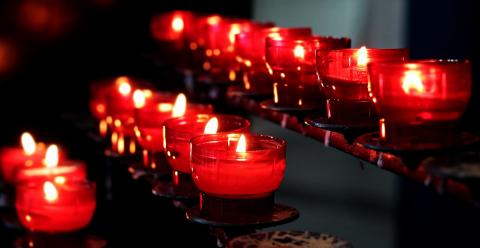
The following is the Ash Wednesday (February 26) reflection from the 2020 Lenten Reflection Guide from the Maryknoll Office for Global Concerns. The following article was published in the January-February 2020 issue of NewsNotes.
In this season of Lent, we are invited to step back and closely examine our lives and our hearts. It is not an invitation to a mere moment of reflection, but to a deep, challenging and rewarding journey of repentance and renewal. At the end of this six-week journey is the joy of Easter – but before it lies re-conversion and recommitment to loving God and our neighbor with our whole hearts.
This Lent, we invite you to reflect on a certain dimension of conversion: ecological conversion. Pope Francis defines ecological conversion as occurring when “the effects of [our] encounter with Jesus Christ become evident in [our] relationship with the world around [us]…We come to realize that a healthy relationship with creation is one dimension of overall personal conversion, which entails the recognition of our errors, sins, faults, and failures, and leads to heartfelt repentance and desire to change.”
In today’s first reading, the prophet Joel begins the journey of Lent by calling us to conversion: “return to [God] with your whole heart.” What does this truly mean? How is it related to ecological conversion?
Today’s gospel offers us some first steps. It lays out the three pillars of Lenten practice: prayer, fasting and almsgiving, or action for charity and justice. It emphasizes that we are meant to carry out these practices humbly, not seeking others’ attention or praise, but directing our full attention towards loving God, our neighbor, and all creation.
Returned Maryknoll Lay Missioner Dave Kane writes, “As a human family, we have become unaware of, and insensitive to, how our actions and lifestyles contribute to the destruction of both God’s creation and human dignity.” In moving through our days, how often are we aware of how our lifestyle choices – our purchases, travel, food, trash – are related to the earth? Where do things come from, and where are they going? Whom will our actions harm, and whom will they benefit?
For example, the issue of plastic pollution grows larger every year. Scientists tell us that every bit of plastic that has ever been created is still in existence. About 8 billion tons of plastic have been produced since 1950. Chemicals in plastic are toxic to plants, animals, and humans. Vulnerable people around the world are most exposed to toxins from plastic. However, we largely carry on contributing to the problem, blind to how it affects the poor, the earth, and our relationship with God.
We can begin to approach these large questions and problems by learning to listen – beginning with silence before God and holy attention to the world around us. Pope Benedict XVI, quoted in Laudato Si’, said, “We tend to demean contemplative rest as something unproductive and unnecessary… But rest opens our eyes to the larger picture and gives us renewed sensitivity to the rights of others…and motivates us to greater concerns for nature and the poor.”
Let us practice returning with our whole hearts to God by listening carefully for what God is telling us in “the cry of the earth and the cry of the poor.” After we have listened, we can begin to repent of the harm we have done to our relationships with God, neighbor, and all creation and take steps toward renewal.
